”He has a devil inside him,” Chthonic guitarist Jesse Black Liu says of Freddy Lim, the subject of German filmmaker Marco Wilms’ latest documentary, Metal Politics Taiwan. But he’s also a suited-up politician, elected to the national legislature.
In my review of the film, I make the case that Freddy is Taiwan and Taiwan is Freddy - that the country, too, has a devil inside it.
Metal Politics Taiwan will screen again this Saturday at the Urban Nomad Film Festival. Get tickets here.
Wednesday, May 23, 2018
Tuesday, May 22, 2018
The Rectification of Colonial Names
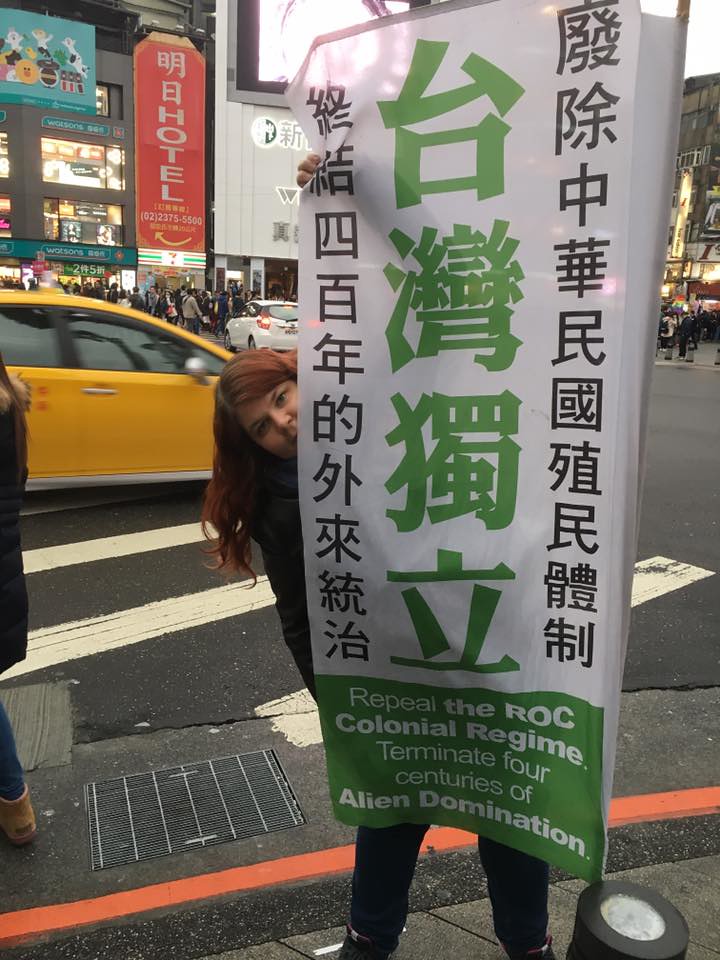 |
| This is talked about in Chinese, but not so much in English. |
Everyone agrees that the Japanese era was a colonial one and nobody disputes that the Dutch era was colonial, as well. This is true in all languages: English, Mandarin, Taiwanese, Hakka, any given indigenous language.
It's not new in political discussions in Chinese and Taiwanese to label the Qing era and the ROC era as "colonial", as well. It happens occasionally in English too: see here and here. Yet I've noticed that in English, such references still seem quite rare. The more nonfiction I read about Taiwan in English the more I notice this: the Dutch and the Japanese are "colonial", but the Qing and the ROC are rarely referred to as such. The way we talk about them lends these regimes legitimacy, a sense of being less "foreign", or a sense that if the colonizers come from China, they are somehow not just as colonial as any other invading force. They are simply "the Qing" or "the Qing era" or "the ROC on Taiwan" - as though they belong here, or it is their destiny, or Taiwan is somehow conceptually a part of China and that somehow makes it acceptable.
Calling the two Chinese regimes in Taiwan "colonial", however, is an idea I agree with. The Qing and the ROC came and extracted what they wanted from Taiwan rather than attempting to rule it as an integral part of their territory. The Qing used it as a place from which to take resources rather than a place to develop by pouring resources in - exactly what a colonial power does. At their best, they treated it as a mere defensive perimeter, a "ball of mud beyond the pale of civilization" (海外泥丸,不足為中國加廣) that they controlled simply to keep other invaders who might cause trouble for China out, not a part of China itself (only in the last decade or so of their rule over Taiwan was Taiwan upgraded to individual province).
The Qing had to be convinced it was worth taking, and the whole notion that China could rule lands beyond its natural borders (mountains, desert and sea) is actually quite modern. The Ming and everyone before them believed China's borders ended at the sea, and therefore that 'Island of Women' populated by 'savages' was simply not Chinese.
The argument put forward to the Qing by Shi Lang was not "hey this should be a part of China" but "you can use this island to cultivate sugar, rice and wood and hunt deer and it's a good defensive barrier." You know, a colonial argument. They didn't even bother taking over the whole island or to map the eastern half until some other colonial power (Japan) showed a stronger interest in it. Or, in other words, they treated it like a colony.
This treatment of Taiwan hurts us even today. When it comes to the ROC, the main argument against the idea that they too are a colonial power is a historical one: Taiwan used to be a part of China under the Qing, and therefore it can't be considered 'colonial' in the same way as the two were 'historically' united.
Otherwise, the only difference between Japan or the Dutch and the ROC is that the ROC comes from the same country as the ancestors of many Taiwanese. Even if this were definitively true (with many Taiwanese children born to a foreign parent these days - looking for a clear source on that - and Taiwan's genetic makeup being more similar to Southeast Asia than China, I doubt it is), it doesn't matter. If your only argument for being a legitimate government is "we're the same ethnicity" (whatever that means - ethnicity is a cultural construct, not a scientific grouping based on genetics), you simply do not have an argument. Ethnicity doesn't determine political destiny. We figured that out in the 20th century and it's time to apply a more modern understanding of what it means to be a nation to Taiwan.
I mean, what do we call a foreign government that takes over a piece of land and declares itself the sole legitimate government of that land without the consent of the local population? We call it colonialism.
That same power extracted resources from the land it rules - as the ROC did by gobbling up resources, putting its own in charge of large state monopolies under a command economy, expropriating land (much of which was taken for their own benefit), and using revenue from Taiwan - at one point over 90% of it - to fund the building of a military that could accomplish its real goal: "retaking the Mainland". At no point was it concerned with ruling Taiwan for its own sake. You can see that legacy in the haphazard and "who cares this is just a backwater" infrastructure development - if you could call the crumbling craphouses they built even that - that still plagues Taiwanese skylines. As Taiwan took a generation to recover from the economic double-blow of World War II and the KMT invasion, the KMT itself grew rich. As they hunted down and murdered a generation of local Taiwanese leaders and intellectuals, they themselves grew in stature and power.
What do we call such a system? Colonialism.
This is doubly true when the people are at no point allowed to vote or exercise self-determination as to whether they'd like to keep that government (even if elections are held within its framework - that's not the same as voting on the fate of the system as a whole). That it came from China makes no difference. It's still colonialism.
So why aren't we, English-speaking supporters of Taiwan, calling the ROC era, the era in which we live, the "ROC Colonial Era"? Why are we not calling it what it is?
These two ideas are intertwined: if we call the Qing era by what it really was we strike a blow against the 'historical' argument for the ROC not being 'colonial' as well. If the only other time China held Taiwan was also colonial, there is no basis for a non-colonial Chinese government in Taiwan.
In short, why aren't we more commonly telling the truth about Taiwan: that since the 1600s it has, with almost total continuity, been a colonial territory of three countries: the Netherlands, Japan and China (twice)?
I know I've got a tough hill to climb on this one: I'm still riding people's butts about not calling China "Mainland China" or the "Mainland", even among people who are pro-Taiwan. We are ceding semantic ground we really ought not to be ceding to the CCP and to annexationism in general (related: can we please stop calling it 'reunification' or even 'unification'? It's annexation. Make your names for things reflect reality). The fewer linguistic footholds we give for justification of annexation by China, the better.
But if we can't even kick that ridiculous 'Mainland' habit, I wonder how long it will be before we start using English to make reality plain.
China's designs on Taiwan are just as colonial as anyone else's. The only non-colonial government of Taiwan can come from Taiwanese self-determination, which entails voting not just within an "ROC" system Taiwan didn't choose, but voting on the fate of that system.
Until then, we live in a colonial state.
Friday, May 18, 2018
My formal application for China's "Taiwan Separatist Blacklist"
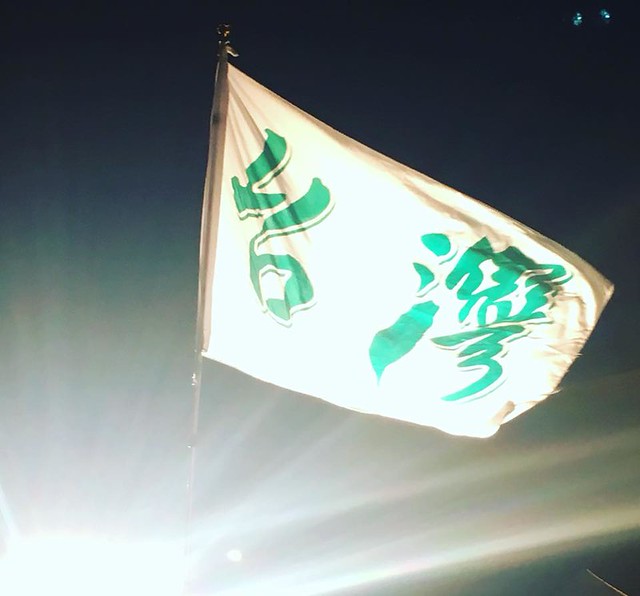 |
| I am quite serious. I want to be on China's blacklist. |
Update: we have a Facebook group! Join us, and apply for China's competitive "Taiwan Separatist Blacklist" position today!
Dear China:
Dear China:
Please consider my application for the position of "blacklisted person" on the "Taiwan separatist blacklist". I learned of this exciting opportunity in The Diplomat and feel that I am a perfect fit for the role. I have the qualities you are looking for in a suitable candidate: I am hardworking, driven and committed to the cause of Taiwanese independence. I mainly contribute through writing, but have been involved in other pro-independence activities which I would be delighted to discuss in further detail.
In terms of personal attributes, I not only support full de jure Taiwanese independence, but also hold many other positions that make me an excellent candidate for the blacklist. I support ending the government of the "Republic of China", which I view to be a colonialist state, and replacing it with a more appropriately-structured "Republic of Taiwan" (or any other suitable name that does not include "China"). I hold progressive values and believe that this vision of the Republic of Taiwan include democracy, human rights (including marriage equality) a fair and independent judiciary and suitable aspects of a social democratic state. Furthermore, I view the Republic of Taiwan as a multicultural entity, based on shared values rather than ethnicity, which has fully come to terms with its unique history as a colonial and settler state. While this history intertwines with China's at several key points, I do feel it to be separate and unique to Taiwan.
As a result, I bring to the table not only a strong support of Taiwanese independence, but progressive values which many candidates may lack and which (despite the requirements being somewhat vague) I understand your organization holds in particularly high regard when considering successful applicants to the blacklist.
On a personal note, it has always been my dream to be blacklisted and banned from China, and selecting me for this coveted position on your blacklist will be a culmination of my work as a writer to this date.
In terms of personal attributes, I not only support full de jure Taiwanese independence, but also hold many other positions that make me an excellent candidate for the blacklist. I support ending the government of the "Republic of China", which I view to be a colonialist state, and replacing it with a more appropriately-structured "Republic of Taiwan" (or any other suitable name that does not include "China"). I hold progressive values and believe that this vision of the Republic of Taiwan include democracy, human rights (including marriage equality) a fair and independent judiciary and suitable aspects of a social democratic state. Furthermore, I view the Republic of Taiwan as a multicultural entity, based on shared values rather than ethnicity, which has fully come to terms with its unique history as a colonial and settler state. While this history intertwines with China's at several key points, I do feel it to be separate and unique to Taiwan.
As a result, I bring to the table not only a strong support of Taiwanese independence, but progressive values which many candidates may lack and which (despite the requirements being somewhat vague) I understand your organization holds in particularly high regard when considering successful applicants to the blacklist.
On a personal note, it has always been my dream to be blacklisted and banned from China, and selecting me for this coveted position on your blacklist will be a culmination of my work as a writer to this date.
As the writer behind Lao Ren Cha (老人茶), a blog which is in English, not Chinese, and my status as commentator rather than activist, I understand that my professional credentials for this highly sought-after position on your blacklist might not be as illustrious as others. However, I can assure you, what I lack in qualifications I more than make up for in passion and vigor. If selected for your prestigious blacklist, I can assure you I will more than live up to expectations as a supporter and perhaps agitator for Taiwanese independence.
Sincerely,
Jenna Cody
Lao Ren Cha
Wednesday, May 16, 2018
It's not the name, it's the helplessness
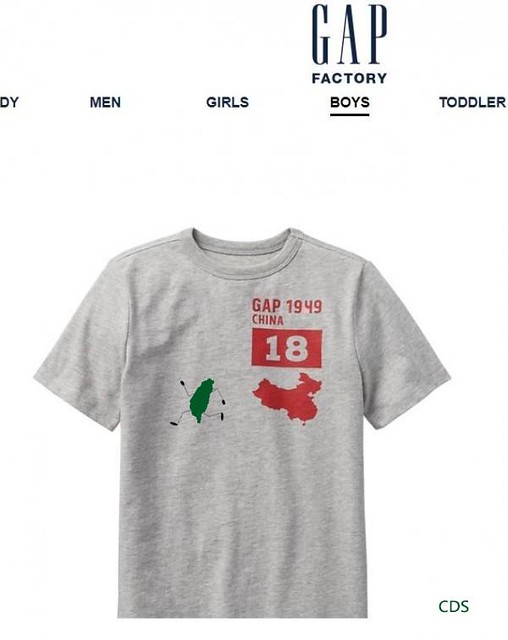 |
| Not entirely accurate, but funny |
Another day, another instance of the Chinese government being assparrots.
First, the Gap sells a really cool t-shirt that shows a map of China that doesn't include Taiwan (the picture above is a photoshopped joke version by a friend - the real one didn't include a Taiwan running away or the year 1949), and then apologizing for printing a map of China with "incorrect borders".
The borders are entirely correct (even in areas where I don't think they should be, such as Tibet and Xinjiang).
But, of course, selling t-shirts in China is more important than having a spine, and I can't even really bother to argue against that because it's about as useful as farting in a stiff breeze. T-shirts are going to matter more than values, principles or ethics for as long as I'm alive, most likely, and when I am consumed by rats or worms, they will continue to matter more than what is right.
Then, Air Canada - wobbly jellyfish to the last - changes Taiwan on their destination list to "Taipei, CN". Of course that destination does not exist. It's like trying to book a flight to Heaven, or Hell, or Oz, or wherever the Care Bears and Smurfs live. A wonderland of CCP revisionism. An imaginarium of a less just world.
"Travel everywhere with us," one of their Facebook posts says. Everywhere, it seems, except Taipei, Taiwan.
"Get your friends to travel together," another one says (on their Chinese-language Facebook page). Sure, let's travel to China (since apparently Taiwan doesn't exist), to get on our knees and pleasure Xi Jin-ping because watching him make his O-Face matters more than correct geographical labeling.
People have started petitions. Great. I went and trolled Gap on Facebook because I have nothing better to do with my time, the universe is cold and uncaring and not only are we all going to die, it won't even matter that we lived in the first place - tiny germs on a speck of dust hanging in a vast, rock-and-gas filled amoral vacuum that will also cease to exist one day. But, trolling Gap is fun so there's that.
This follows a string of "Orwellian nonsense" that's been going on for years as China acts like a massive baby - the tenderest snowflake there is - at the mere mention that a democratic nation called Taiwan exists. It's nothing new.
Of course, it hurts not that China does this - China's gonna China - but that the rest of the world caves in. That they are such cowards and hypocrites. They give in to fantasy land. Their actual moral compasses are about as sturdy as a cheap shit Gap t-shirt made in China.
And it hurts even more that there's so little we can do about it. We sign petitions as the rats get ready to gnaw our bones. We make snarky Facebook posts. Perhaps we contact our elected representative, who also cares more about t-shirts than principles. We gnash our teeth and feel upset, and it happens again and again as the vast coldness of space whirls around us, unaware.
From dust we came and to dust we shall return, but in the meantime, you really should sign the petition. I guess.
Taiwan's defamation laws can silence sexual assault victims
Much has been made in the foreign community recently about Taiwan's insane defamation and personal insult laws, what with some guy who got flipped off acting like a massive can of Tender Pieces and suing over it, among other things that I won't write about here.
In Taiwan, you can get sued for flipping someone off, shouting a swear word at them (including "fuck"), writing something critical that the person criticized simply doesn't like, or less. According to this interpretation, telling the truth (or believing you are) is a valid defense, but to be frank, I've been privy to court cases where that didn't seem to play out as cleanly as the text would imply it ought to.
I mean, I thought we'd gotten rid of authoritarianism and suppression of freedom of expression in Taiwan, but clearly not entirely. There have been times when there were things I know to be true that I would have liked to have published here, which I feel were in the public interest and have refrained knowing that being right isn't necessarily enough. Honestly, the implications for freedom of speech for this are horrifying - you can be telling the truth about some awful people or organizations that should be publicly known, and still have it come back to bite you. I have more than one gut-wrenching story that I will only share in private.
So, what to do if you are a victim of sexual assault? I've written about this elsewhere as part of a longer piece, and after much thought, still don't have a good answer.
Sexual assailants often strike where there are no witnesses or cameras. It's your word against theirs. Even if there are witnesses, they might not come forward for you. It's hard to press charges in such situations, especially when it's not the type of sexual assault that leaves physical evidence behind.
Leaving aside cultural taboos that prevent victims from coming forward (a different topic), let alone pressing charges, the law is not on the side of anyone assaulted in this way. In the US, if your goal is to warn others about someone's predatory behavior and see that there are natural consequences to their actions, but don't want to or can't press charges, you can still come forward. Your speech is protected by law unless it can be shown that it was intentionally false and malicious. The burden of proof is on the accuser.
In Taiwan, all you need to do is get flipped off or have someone say "fuck you" in your general direction because you did something to piss them off to win. If you sexually assault someone but they can't prove that you did so, the burden of proof is on the accuser-turned-defendant if they want to speak out.
What do you do in Taiwan, then, when you have been sexually assaulted and you want to #MeToo the hell out of it - warn other women, make it clear that there are social consequences for such actions - but cannot or don't want to (or can't afford to) press charges?
If you speak out, you could very well be slapped with a defamation lawsuit. Literally, some guy grabs your ass, you talk about it publicly (but don't want to press charges) and he sues you for defamation. He might not win the case, but he's cost you quite a bit of money in lawyer's fees even if it never goes to trial. There is no guarantee, however, that it won't go to trial and you won't lose. I've seen weirder, less well-argued verdicts handed down.
A reliable source of mine says the laws protect those who speak out about being sexually assaulted or harassed, but to be honest, I've looked and I can find no such explicit legal protection. If anyone does a better research job than I have, please feel free to let me know.
No wonder there is no #MeToo movement in Taiwan. Beyond the tendency to not report due to cultural pressures - don't rock the boat, you'll ruin his career over a pat on the ass, what were you wearing anyway, don't make waves, it will make things difficult, just let it go - one simply cannot report without fear of entirely unfair legal repercussions.
In this particular way, I cannot say that Taiwan deserves credit for having robust freedom of speech protections.
It doesn't.
Monday, May 14, 2018
The Contortions of a Dove in Hawk's Clothing
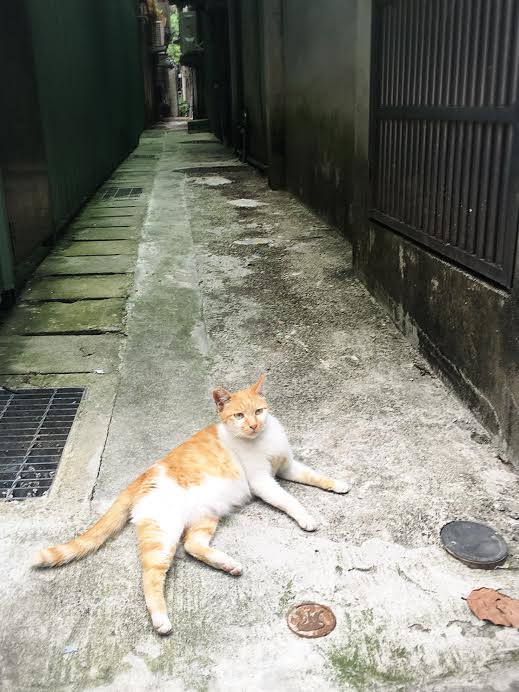 |
| Guard the alley, cat. |
Taiwan makes me contort myself in weird ways.
I don't mean living here, I'm pretty used to that. I mean in figuring out how the hell to reconcile my international political beliefs.
Because I'm not an expert in IR (having majored in it in undergrad 16 years ago doesn't count) I'm not going to try to analyze anything. I'm just going to say - so many people seem to think all of these Korea-focused summits between Moon, Kim, Trump, Xi in various permutations are fantastic, and I too would love to be on the side of discussion, negotiation and diplomacy carrying the day toward peace and nuclear non-proliferation. I'm a liberal, right? We're foreign policy doves, are we not?
This is better than troops stationed for decades in foreign countries, nuclear tests, threat of war and ever-increasing military spending, is it not?
I'm not so sure of either.
The dove in me would love to see fewer American troops stationed abroad. The realist in me knows that Kim wants this, Trump is already talking about it, Xi definitely wants it, but it would be terrible for Taiwan. Mostly, I'm afraid that this is Xi's game: fewer US troops in the region that could potentially be deployed quickly is a clear strategic advantage for China and its designs on Taiwan. To continue the strongest possible deterrent to Chinese attack on Taiwan, I have to be in favor of continuing to station (and pay for) US troops in South Korea. I have to set myself against de-escalation and for the (heavily militarized) status quo.
I don't like that one bit. It goes against everything I believe in otherwise. But I also believe in Taiwan and have no doubt that deterring Chinese designs on Taiwan is not only the right thing to do, it's essential.
It is clear to me that the person who benefits from Trump looking like he's doing some good is Xi. He knows Trump is a paper tiger in most respects who can't be controlled but can be played, whose saber-rattling only makes China look like a victim when it isn't one (he is probably more worried about Trump's pro-Taiwan advisors, but also knows Trump people can and do get fired all the time).
The person who benefits from a US troop withdrawal in South Korea, in terms of regional influence? Xi. (I'd say "China" but it's all run by Xi anyway). The person who benefits from a denuclearized North Korea (if that actually happens, which I doubt - North Korea wouldn't be willing to talk if it didn't think it already had a deterrent to US attack, has broken promises after negotiating concessions), and from it seeming as though the region is peaceful and therefore there is no reason to maintain US influence at current levels? Xi. The person who benefits if the rest of the world decides Taiwan is not geostrategically important enough because Asia is quiet? Xi. Who keeps meeting with Kim with timings so fortuitous that they're practically announcing who is directing the "North Korea is suddenly playing nice" train? Xi.
Who is Taiwan's greatest enemy? Xi. Not the CCP (though they're pretty bad), not China. Xi. He’s not the next Mao Zedong. Mao had (messed up) ideals. He’s the next Chiang Kai-shek: ruthless, amoral, immoral, power-hungry, and weirdly obsessed with Taiwan.
It terrifies me that the small country that always breaks promises is being directed - and I do believe they are - by a big country that always breaks promises, which has designs on the country I live in and love. It terrifies me that so many people think peace always benefits everyone and that all players are honest and well-intentioned, when they are not, and the peace these people broker now could well lead to a war for Taiwan's continued freedom later.
But winning the hearts and minds of my fellow Western doves means convincing them that US military presence in Asia has more pros than cons and what looks on the surface like ‘peace’ actually isn’t. Good luck with that.
Granted, I don't think a troop drawdown in Korea is the only thing standing between Taiwan and China. We have troops elsewhere too and influence can mean as much as military might. It's more that every drop of US defensive capability that disappears from Asia is one drop less that China might have to contend with if it invades Taiwan (and it knows it). Every bit less of US influence in Asia is a bit more influence that China wins. Besides, troop drawdowns in S. Korea also affect Japan - this won't be good for Japan either if what I think is going on actually is.
I know this sounds a lot like wanting to keep letting the US run the show around the world rather than letting Asia (and Asians) manage their own affairs - and that too makes me as uncomfortable as doing a crazy yoga position. I don't particularly like US global hegemony, it was created to serve US interests, not the interests of the world as a whole.
But peace isn't always what it appears to be - you can bet Xi wants increasing power (and territory) in Asia to look "peaceful" so the West will stay away. Destruction can be rebuilt from - avoiding it is not always the top priority. CCP oppression is forever.
And so I'm stuck being a hawk even though I really, really don't want to be.
Saturday, May 12, 2018
The Republic of Tayovan
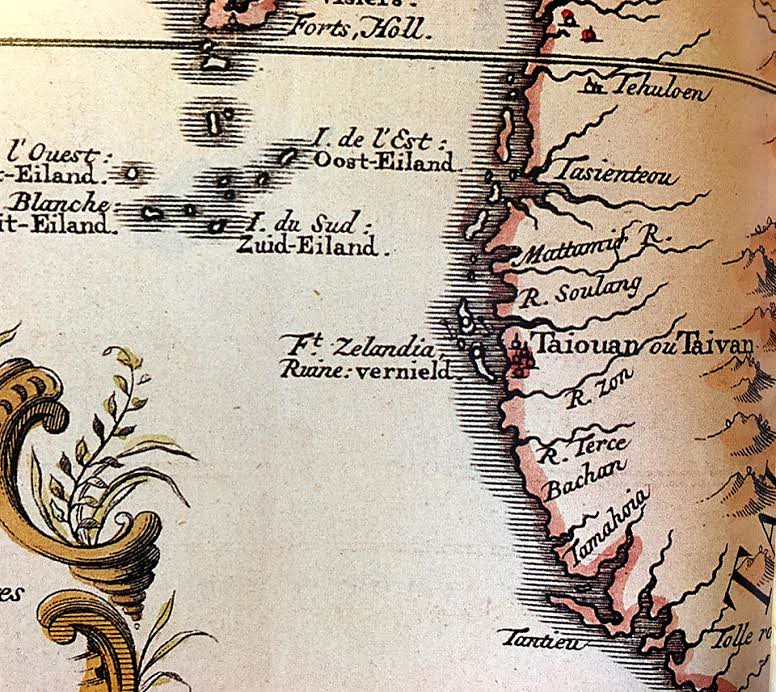 |
| From Jerome Keating's book, The Mapping of Taiwan. p. 76-77. I have seen (reprints of) maps that spell it as "Tayovan" but I don't have access to them right now. |
Let's say you have a beautiful island. It's so beautiful that some random Europeans sailing by one day named it "The Beautiful Island".
Let's say that since that time, your island has never quite been free of colonialism.
First, the Dutch came. They called your island Formosa, just as the Portuguese named it. They imported immigrants from China to work for them, who called it "Tai'ouan", a Hokkien rejiggering of the indigenous - Siraya - name for bit of land near present-day Tainan, which was established as the capital. This can also be written as 臺員, and I've seen it written as 代員. This is the foundation for the modern name "Taiwan". That name was "Tayovan", and it can be seen on maps from that era.
Taiwan has been known by a number of names. There's Tungning (東寧), Tungtu (東都), Taiwan, The Republic of Taiwan (also sometimes called the Republic of Formosa), Ryukyu, Takasago (高砂), Taiwan Prefecture, Taiwan Province, The Republic of China - not in that order. In all cases, Taiwan was treated as a colony: Koxinga, the Qing, the Japanese, the ROC. Every last one is a colonizing power, in that they came from a foreign land and claimed ownership of Taiwan, without the consent of the locals. It's not common to call the Qing or the ROC colonizers, at least not in English - some sort of deference to ethnic chauvinism there maybe - but they most certainly are.
Now, there is an ongoing social discussion of what to call Taiwan. Die-hard blues with roots in China cling to "the Republic of China", but nobody who is even nominally forward-thinking takes this idea seriously. One of the main points of this discussion is that Taiwan is not a part of China, and deserves its own name.
Taiwan? I know someone who refuses to use the word, and insists on being referred to as "Formosan", because "Taiwan" is a "Chinese" name and he is not Chinese. (Of course, the name is an indigenous borrowing, it's not originally Chinese...but, that's cool.) In any case, he's not wrong that China would love for everyone to call this island "Taiwan", as in "Taiwan, Province of China".
He is not young, but a lot of young politically-minded Taiwanese have also landed on "Formosa" as the ideal name for Taiwan. It seems like a nice choice - it was a name given by Portuguese explorers, and Portugal never colonized Taiwan. It's a compliment, a reminder that while Taiwanese cities are not particularly attractive, the island as a whole is very beautiful indeed.
But I'd like to make the case for "Tayovan" (or "Taivan", but "Tayovan" makes it clearer that this is a departure from "Taiwan"). The Republic of Tayovan. Has a nice ring to it, no?
First, although it was originally a name for only a small bit of land around Tainan, it was the basis for which "Taiwan" came to be.
Second, this idea is not unheard-of in Mandarin and Taiwanese language discourse. I searched and can't find any links, but I know I've heard it discussed. I don't hear anyone talking about it in English, though.
Next, it has indigenous roots. No colonization involved. No other name has that pedigree - the Portuguese never colonized Taiwan, but they did brutally colonize other parts of the world. They were not Taiwanese - it's still a name bestowed on this island by Europeans (just as 'Taiwan' was bestowed on this island by Chinese).
There are a number of indigenous tribes in Taiwan (don't let the 'officially recognized' number fool you), all with their unique history, language and culture. All might wish to be the group honored in the hypothetical choosing of a new name for the country in recognition of its first inhabitants. However, because this is the specific name that came to be used for the whole island, it makes the most sense. It also comes from a language that is no longer spoken natively, so it's harder to accuse the government of giving preferential treatment to a currently-used language.
Finally, wouldn't be a big change - just switch your pronunciation, a little adjustment to spelling, maybe change the characters - and honors a deeper history that is uniquely Taiwanese. The waves of colonizers - the Dutch, the Zhengs, the Qing, the Japanese, the ROC - cannot lay claim to this. It doesn't speak to their history, it speaks to the history of this island. It recalls an Austronesian history that is so often overlooked.
And, y'know, it just sounds super cool.
Somehow I doubt I'm going to convince the entire nation to get on board. But, if I'm ever allowed to cast a vote on this, count me in for Republic of Tayovan.
Come on guys - Tayovan!
Subscribe to:
Posts (Atom)

